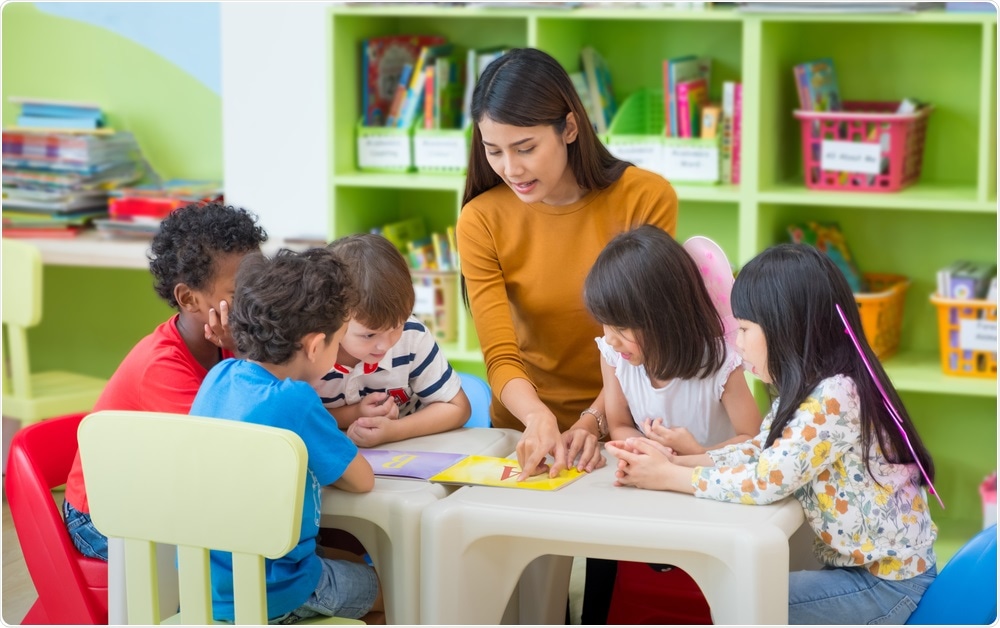A new study has found that young children prefer to learn from people they see as confident.

Image Credit: Weedezign/Shutterstock.com
Even more interesting is that the study also showed that children can calibrate, where they monitor how well a person's confidence has matched with the accuracy of what they have said over the past.
Children show a pattern of avoiding learning from those who have previously shown themselves to be overconfident. The study provides the first evidence of children tracking calibration, the concept that describes the matching up of confidence and actual knowledge.
Children avoid learning from people who have been wrong in the past
A research team at the University of Colombia published the findings of their groundbreaking study in the journal PLOS ONE this week. The results extend on a wide body of research that has already demonstrated that children have strong social learning skills.
What is significant in the research that the Colombia team has presented, is that the data shows how children are more apt at selecting the write sources for learning, than had previously been assumed.
The evidence presented in the latest study shows that when people provide children with information that later turns out to be incorrect, children show a tendency to avoid learning from these people in the future.
They understand that people who have proved to be unreliable in the accuracy of their knowledge are not preferable sources to learn from.
This information gives a positive look at the future, given that the world we live in seems to be saturated with misinformation. It gives us confidence that children are wired to filter out sources of incorrect information and seek out sources of truth.
This innate mechanism is likely to be a result of evolution, having been established due to its benefit of ensuring children are learning the most accurate information, and better equipping them to face the world.
It is not only what you teach, but it is also how you do it
While the study shows that children demonstrate sophisticated reasoning abilities at a young age (four to five years), it’s not until they have reached around eight years old when they achieve an adult-like understanding of the concept of confidence, and hesitancy as its opposite. Young children are more likely to treat hesitancy as a separate entity to confidence, rather than its opposite.
The study involved a total of three experiments in which researchers tested 662 children aged between three and 12. The children were shown videos of actors who displayed both justified and unjustified confidence.
Also, they showed justified and unjustified hesitancy. Researchers recorded who the children preferred to learn new words from, and they also who they believed was smarter.
The results suggested that children are quicker to learn that someone’s confidence may be justified, for example, if their confidence matches their level of knowledge and accuracy than they are to learn that hesitancy can be justified.
Researchers believe that the evidence says that as children it is easier to learn to mistrust people when they unjustifiably confident because their accuracy does not match with their level of confidence. However, it is harder to learn to trust someone who is justifiably hesitant. More research is called for to better understand the development of the understanding of hesitancy.
Researchers suggest that their findings should inform both parents and educators that how they communicate information with young children is important for establishing themselves as a credible source to learn from.
Further evidence on the development of the understanding of hesitancy will help deepen our knowledge of how educators and parents can adjust their behaviors to help children learn better from them.
Journal reference:
Birch SAJ, Severson RL, Baimel A (2020) Children's understanding of when a person's confidence and hesitancy is a cue to their credibility. PLoS ONE 15(1): e0227026. https://doi.org/10.1371/journal.pone.0227026